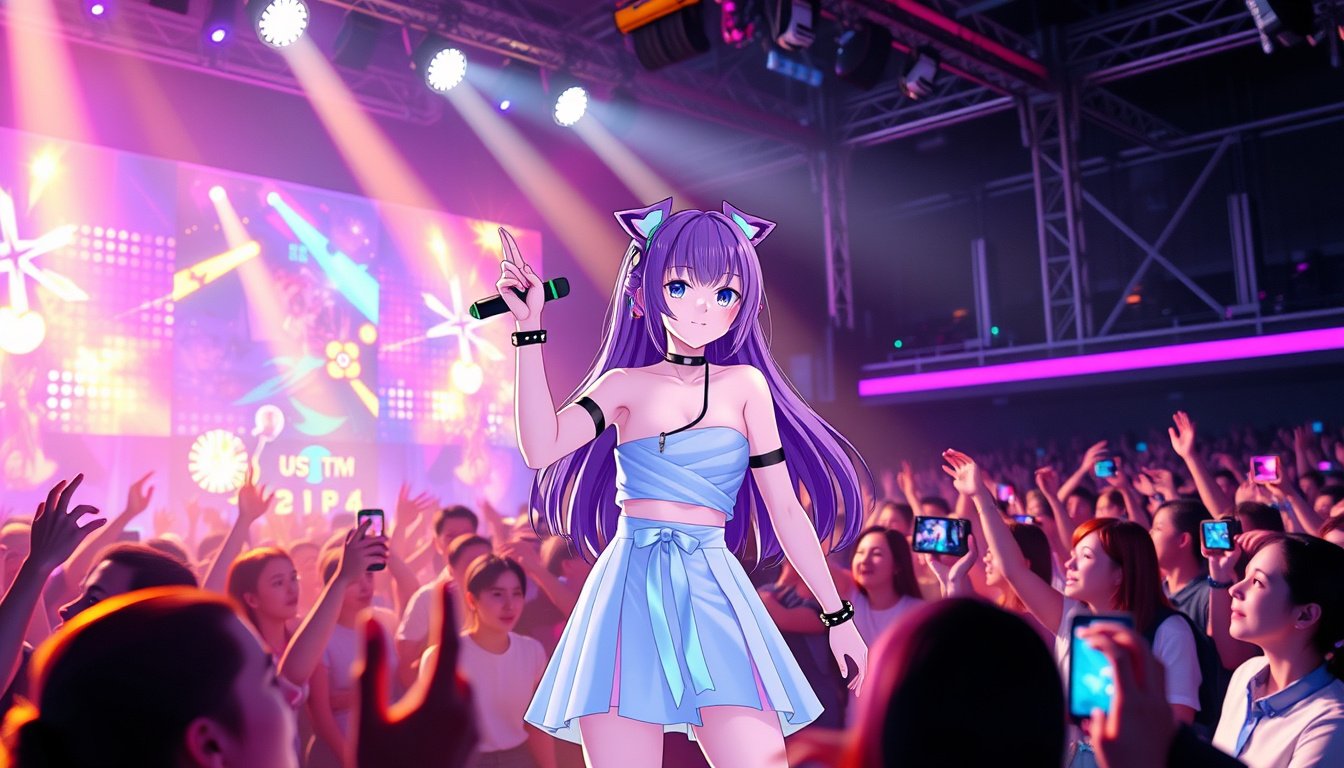In recent years, the entertainment landscape has undergone a significant transformation, largely driven by the advent of technology and the digital age.
Among the most fascinating developments in this space is the emergence of VTubers—virtual YouTubers who create captivating online personas, often depicted as anime-style characters.
This article delves into the rise of anime girl VTubers, exploring their impact on the concert scene and whether virtual performances could signify the future of live entertainment.
As audiences grow increasingly divided between traditional concerts and virtual events, we will assess how these digital entertainers challenge our notions of fame and connection in the music industry.
Can a cartoon character genuinely resonate with fans as profoundly as a real-life performer?
Join us on this exploration of reality versus virtual fame.

Key Takeaways
- VTubers are revolutionizing the concert experience by blending virtual and reality.
- The popularity of Anime Girl VTubers raises questions about the nature of fame and authenticity.
- The shift from traditional concerts to virtual performances reflects changing audience preferences and technology advancements.
The Rise of VTubers and the Evolution of Concerts
In recent years, the rise of Virtual YouTubers, or VTubers, has dramatically transformed the landscape of live concerts, blending technology and entertainment in unprecedented ways.
VTubers are online personas, often represented by anime-style avatars, who create content on platforms like YouTube and Twitch.
Their growing popularity speaks to a cultural shift, as they have begun to dominate concert scenes, selling out virtual events that attract massive audiences from across the globe.
The appeal lies not only in their unique performances but also in the interactive nature of the digital format, where fans can engage with their favorite performers in real-time, creating a dynamic and immersive experience.
This evolution raises intriguing questions about the nature of performance art and authenticity—are these digital avatars ‘real’ artists?
While traditionalists might argue that live concerts require a physical presence, the VTuber phenomenon has proven that the digital experience can evoke genuine emotions and connections, redefining what it means to enjoy a concert.
As the boundaries between virtual and physical continue to blur, audiences are left to ponder the future of live entertainment and the integral role that technology will play in shaping it.
Comparing Virtual Fame with Traditional Celebrity Status
In the ever-evolving landscape of entertainment, the gulf between traditional celebrity status and the rise of virtual fame has become a focal point of discussion.
Traditional celebrities, rooted in long-established norms, convey authenticity through personal storytelling and physical presence, often building a fanbase through relatable life experiences.
In contrast, virtual personalities, such as VTubers—animated avatars controlled by real individuals—are captivating audiences through innovative technology and immersive experiences.
Recent reports, like the one from WIRED, illustrate how anime girl VTubers are not just engaging audiences online but are also successfully selling out live concerts, blurring the lines between reality and performance art.
Critics often question the ‘realness’ of such virtual entertainers, while fans passionately celebrate their unique artistry and emotional resonance.
This nuanced conversation invites us to redefine what it means to be a celebrity in the digital age, where influence can be derived from both tangible presence and virtual charisma.

